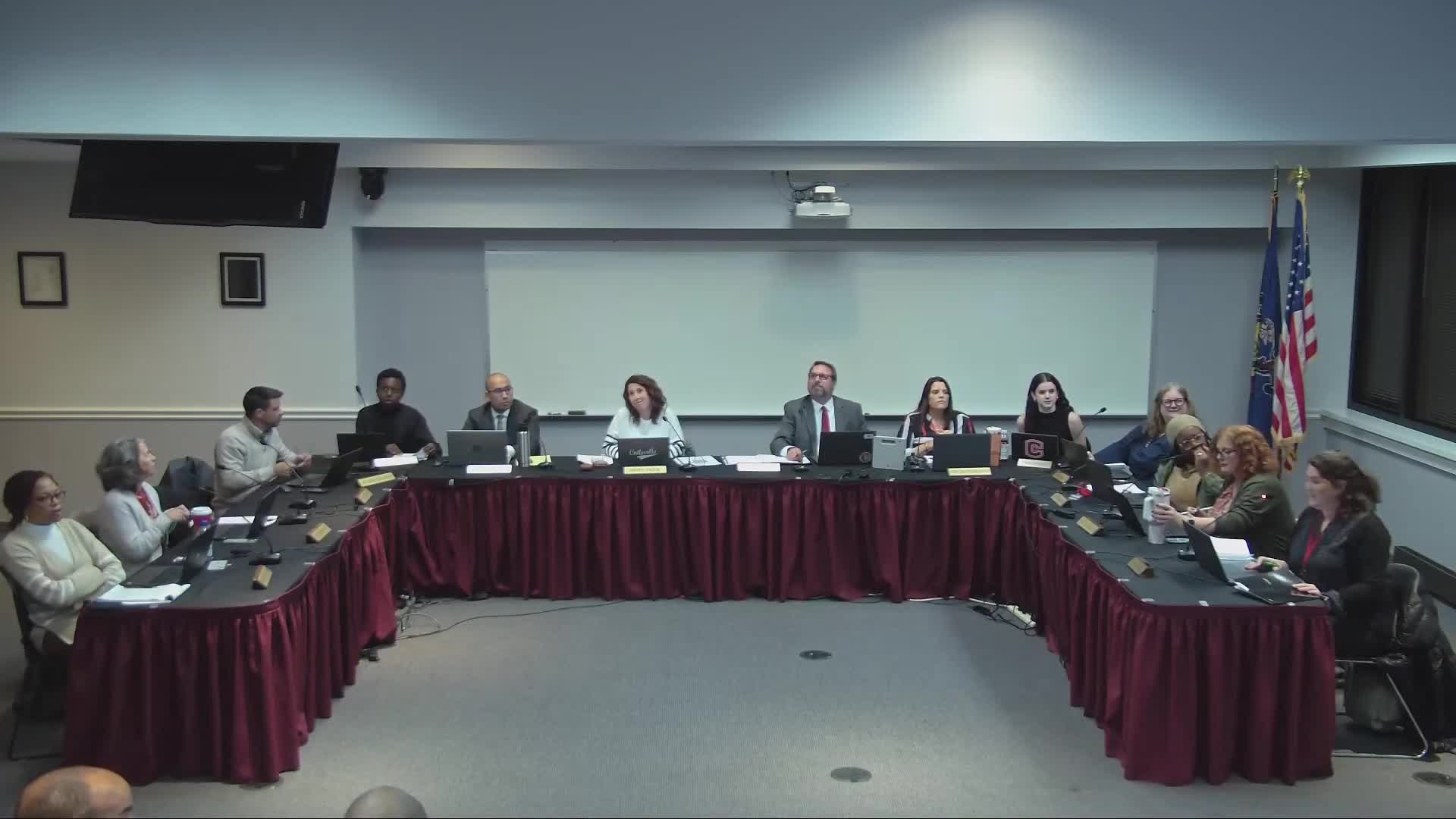Coatesville police, district prosecutor and ShotSpotter reps brief board on plan to extend gunshot detection to high‑school campus
Get AI-powered insights, summaries, and transcripts
Subscribe
Summary
Coatesville police and the district attorney urged the board to allow ShotSpotter microphones on the high‑school campus, saying city coverage (live since Sept. 25) has led to arrests and a life‑saving police response; the committee asked staff to draft an agreement for review in January.
Chief Jack Laufer told the Coatesville Area School District operations committee that the city has used ShotSpotter since Sept. 25 and has seen more than 20 reported gunfire incidents, two arrests and one occasion in which officers rendered life‑saving aid before a 911 call arrived. He said the city worked with the district attorney and state representatives to secure funding and has proposed extending the system’s boundary to include the high‑school campus by installing additional microphones on school property at no immediate cost to the district.
District Attorney (introduced by presenters) described his prior use of the technology as a federal prosecutor and said his office supports adding campus coverage. He asked the committee to authorize installation of roughly six sensors to give officers more precise locations and to supply evidence that can be used in prosecution.
Representatives from SoundThinking/ShotSpotter explained how the system works: an array of rooftop microphones detects loud impulsive sounds, an algorithm and a human reviewer screen for gunfire, and the company delivers a short audio clip and coordinates to officers. Company staff said the system typically notifies officers within a minute and retains short recordings only for use in investigations; they cited a two‑part model combining AI prescreening and human verification and gave an overall accuracy estimate in the mid‑90s after review.
Board members pressed on privacy, retention and over‑policing concerns. Company representatives said sensors record only a second before and a second or two after a detected impulsive sound, retain audio on the sensor for a limited time (company representatives described a rolling retention policy) and delete non‑shot events; they emphasized that the company’s human analysts filter out non‑gun events and that police are trained to use alerts as one part of a measured response.
On costs, presenters said there would be no upfront cost to the district: city and county/state grants are covering the extension and pricing is reportedly locked for three years with commitments currently covering about 18 months. Committee members asked for the contract language that governs access to the recordings and for details about retention, release and legal process. The committee did not vote to install equipment; instead staff were directed to work with ShotSpotter, the DA’s office and police to draft an agreement and bring it to the committee for consideration in January, with the earliest full‑board consideration on the January agenda.
